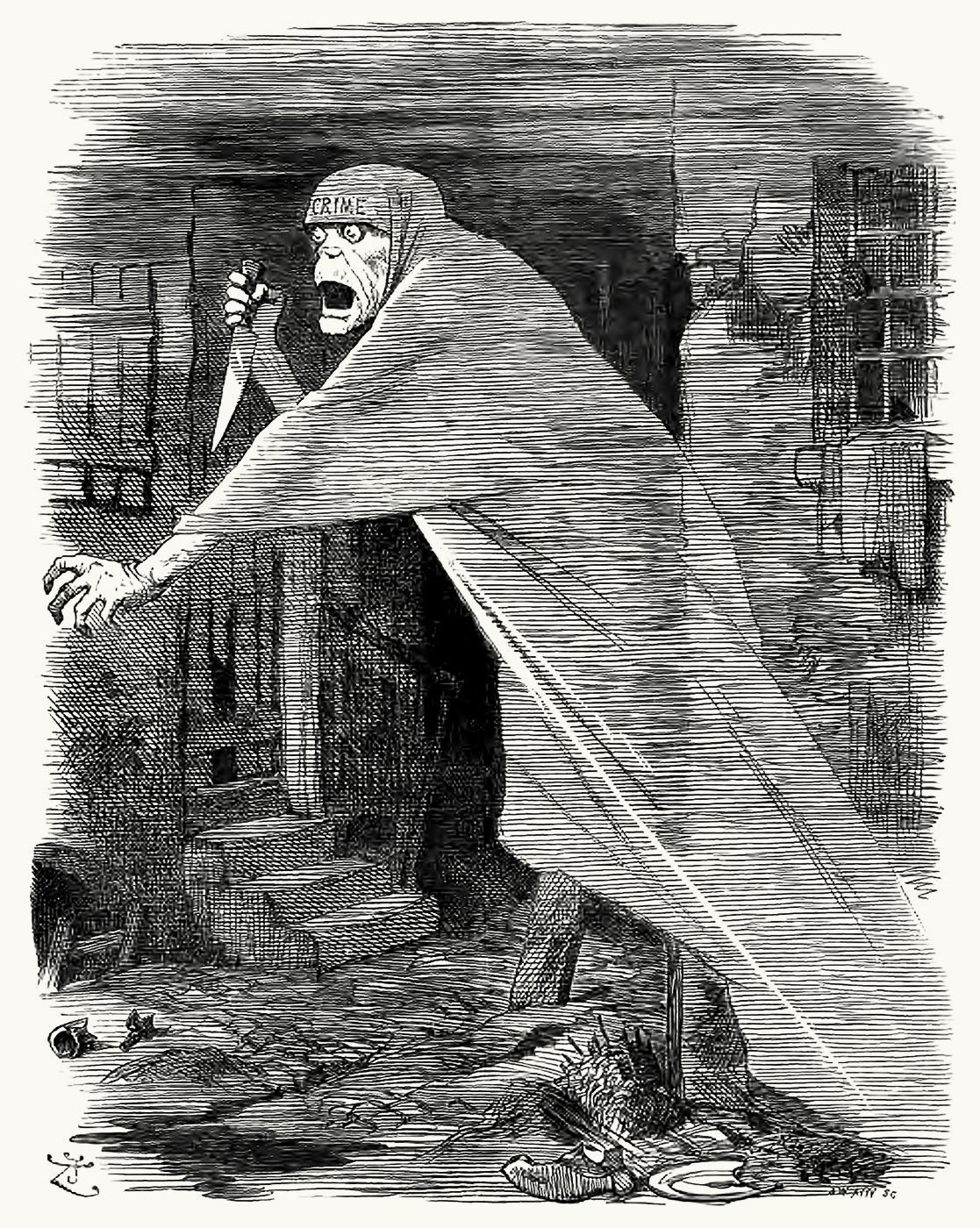Life had been rough for Mary Ann “Polly” Nichols. She was daughter of locksmith Edward Walker, never wealthy but never starving. She married William Nichols, a printer's machinist, by 1864, and the couple had five children before falling out. Familial arguments blurred the truth of the matter (whether William had had an affair or whether Polly had deserted him), but by 1881, Polly was living practically on the streets. She had lived with her father before an argument drove them apart, dwelt in a workhouse after being arrested for sleeping in Trafalgar Square, and left a position as a servant while stealing clothes. Much of her life was spent deep in alcoholism, which had driven Polly to prostitution for survival.
On the night in question, Polly had earned well more the fourpence needed for a bed for the night, but had spent the money on alcohol. Returning to the streets, she was met by her roommate Nelly Holland, who, detecting an eerie something in the greenish Whitechapel air, warned her to be careful. Usually Polly would disregard the warning as a pleasantry, but tonight it gave her pause.
Sometime about three o'clock in the morning, Polly was approached by a man she described as “a right gentleman” who called from his carriage. They went to Buck's Row, where the man suddenly pulled a knife. Polly, having been on guard, saw the man and pulled back. Being old, he missed her by far, and Polly attacked him with her fingernails, slaps, and punches. The carriage driver gave a yelp, the old man pleaded with groans, and Polly escaped into the night.
She hid until dawn in various alcoves around London before finally returning to her lodging house, still penniless. Nelly greeted her, and the two discussed Polly's night. With such closeness to death, Polly had reexamined her life, which she found suddenly very lacking. Her story would be picked up by newspapers on what was to become a month of slow news. Giving up alcohol, she returned to the workhouse, later taking a job as a housekeeper and eventually reuniting with her husband.
Also on this day, famed physician Sir William Gull died of stroke. He had battled the disease for a year with several attacks, and this seemed the worse with a seizure that produced bruises and scratches where he must have thrown himself against the headboard of his bed. The acclaimed physician was known for his research in paraplegia, anorexia nervosa, and kidney disease. In 1871, he had served as Physician Ordinary to the Prince of Wales, saving the future king through care during a particularly nasty case of typhoid fever.
–
In reality, Nichols would be the first of many brutal murders by the notorious “Jack the Ripper.” Though the murderer would never be caught, a flurry of public panic would bring about one of the most important police investigations of the Victorian Era. New techniques would be developed and embraced, changing forensic science. Meanwhile, media would catch the story as well as letters sent by potential Jacks, giving cryptic messages that may or may not have been from the real killer.
Sir William Gull died in January of 1890 and was also known for his care and encouragement of women both as patients and doctors.

No comments:
Post a Comment